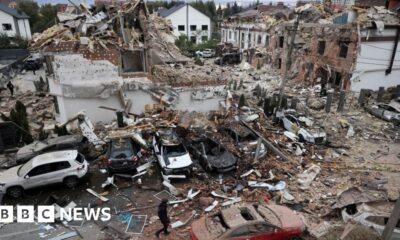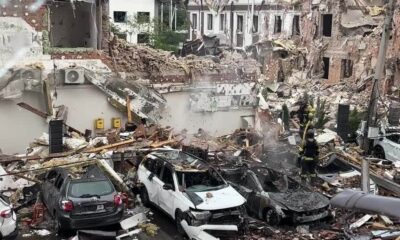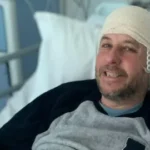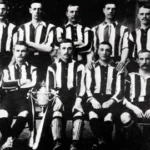Breaking News
UN reimposes sanctions on Iran over accusations it violated nuclear deal
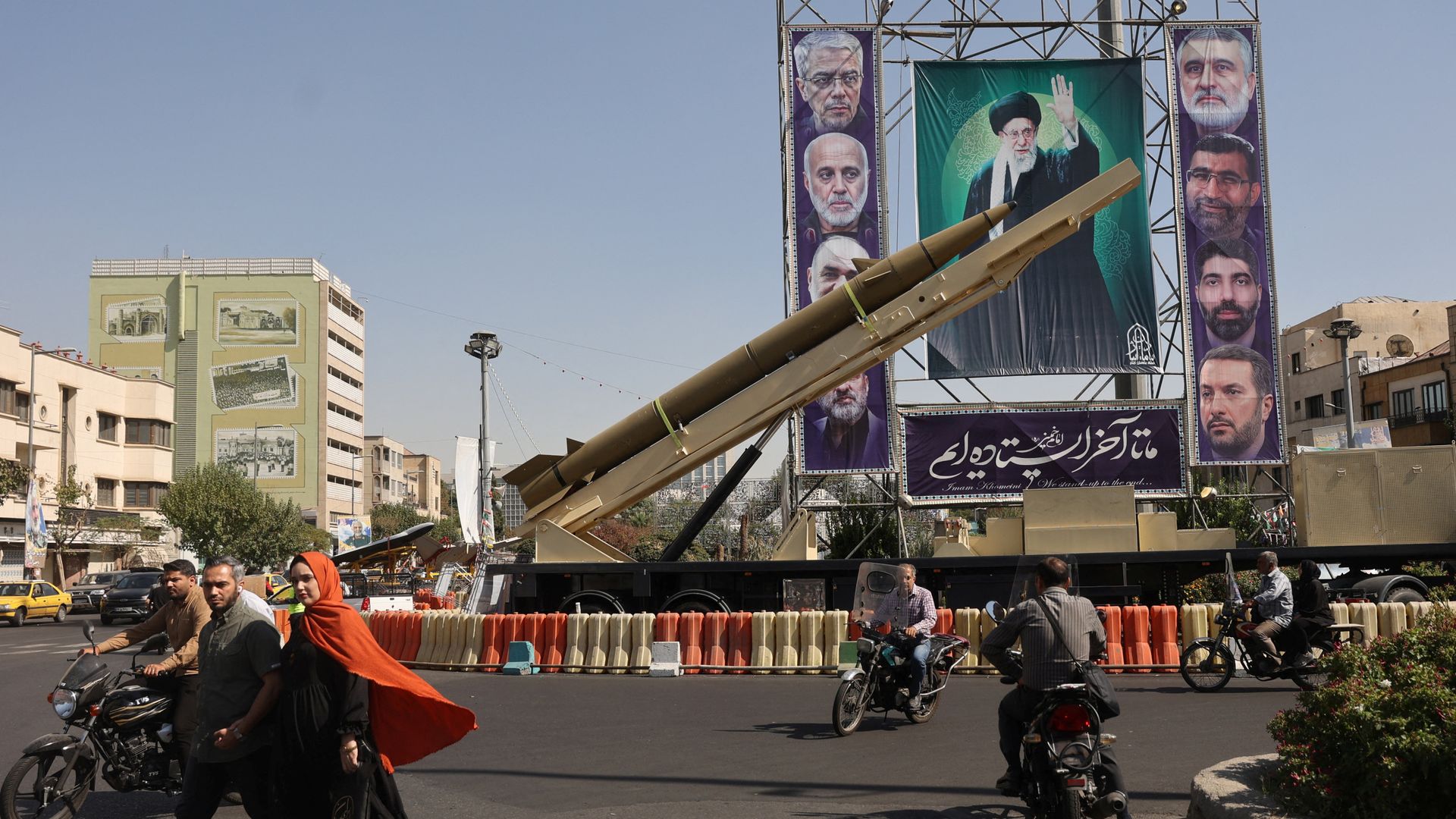
Read more on post .
The United Nations has reimposed sanctions on Iran over accusations that the country violated a nuclear deal.
Britain, France and Germany triggered the return of sanctions on Iran at the UN Security Council after Tehran allegedly violated the 2015 deal aimed at stopping it from developing a nuclear bomb.
The end of the nuclear deal originally agreed by Iran, Britain, Germany, France, the US, Russia and China is likely to further exacerbate tensions in the Middle East, months after Israel and the US bombed Iranian nuclear sites.
Iran denies trying to build nuclear weapons, and Iranian President Masoud Pezeshkian said on Friday that Tehran had no intention of leaving the 2015 non-proliferation treaty.
After the UN sanctions were reinstated, Iran warned of a harsh response and recalled its ambassadors to Britain, France and Germany for consultations.
Russia and China unsuccessfully tried to delay the return of UN sanctions on Iran, with Russian foreign minister Sergei Lavrov later calling the decision to reinstate them “unlawful”.
Read more: Some of Iran’s nuclear facilities were ‘destroyed’ by US strikes, nuclear chief admits
“It cannot be implemented,” he told reporters at the UN.
He added that he had written to Antonio Guterres, the UN secretary-general, to warn him that it would be a “major mistake” for him to acknowledge a return of sanctions on Iran.
Britain, France and Germany had offered to delay reimposing the sanctions for up to six months to allow time for talks on a long-term deal.
In return, the European powers were asking for Tehran to restore access for UN nuclear inspectors, address concerns about its stock of enriched uranium, and engage in talks with the US.
“Our countries will continue to pursue diplomatic routes and negotiations. The reimposition of UN sanctions is not the end of diplomacy,” the foreign ministers of Britain, France and Germany said in a joint statement.
“We urge Iran to refrain from any escalatory action and to return to compliance with its legally binding safeguards obligations.”
US President Donald Trump believes that diplomacy is still an option for Iran and a new deal remains the best outcome for Iranians and the world, according to US secretary of state Marco Rubio.
“For that to happen, Iran must accept direct talks, held in good faith, without stalling or obfuscation,” he said after the reinstated sanctions were announced.
Mr Rubio added that it was important that countries implement sanctions “immediately in order to pressure Iran’s leaders to do what is right for their nation, and best for the safety of the world”, and accept a new deal.
Read more from Sky News:
Russia warns NATO and EU of response against ‘aggression’
Destruction of Gaza hospital witnessed by nurse
The new sanctions on Iran include an arms embargo and a ban on all uranium enrichment, reprocessing activities, the supply of anything that could be used in the country’s nuclear programme, and any activity related to ballistic missiles capable of delivering nuclear weapons, including launches.
There is also a travel ban on dozens of Iranians, as well as an asset freeze on a dozen Iranian individuals and entities.
Iran’s economy is already struggling after President Trump reimposed US sanctions during his first term in 2018, and its rial currency fell to a new record low over fears of the new sanctions.
Breaking News
SF calls for €100k NMH bike shed tender to be scrapped
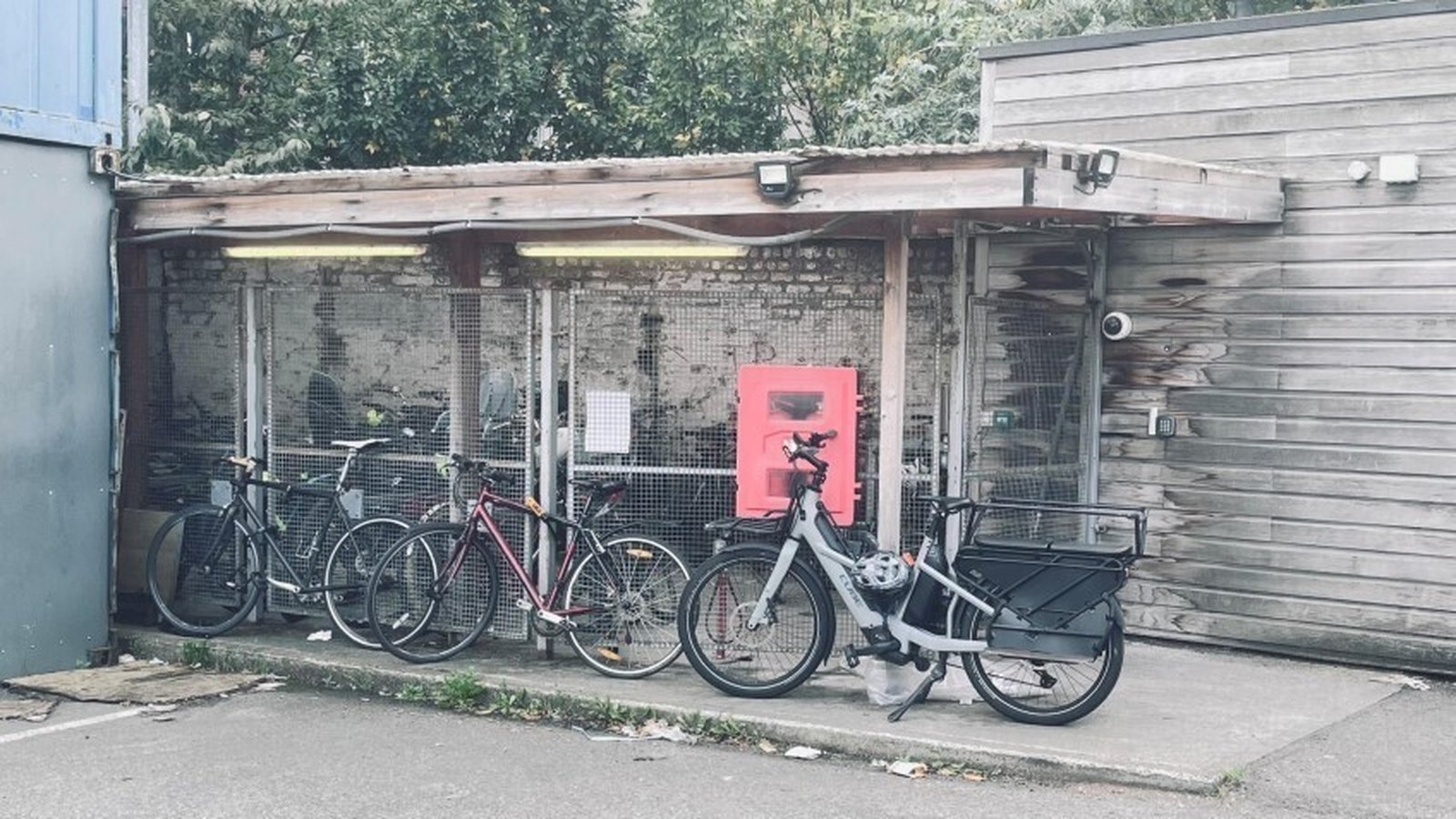
Read more on post.
Sinn Féin has called for a tender for a new €100,000 bike shed at the National Maternity Hospital to be scrapped.
A notice on the Government’s e-tenders website invites submissions for tenders to destroy the old shed and build a new one at an estimated cost of €100,000.
Sinn Féin’s Finance Spokesperson Pearse Doherty labelled the plan for a new bike shed as “outrageous” and referenced a previous controversy when €335,000 was spent on a bike shed at Leinster House.
The €100,000 tender for the proposed bike shed at the National Maternity Hospital includes destroying the existing bike shed and taking away all rubbish.
It is to cover the build of the replacement shed and includes sensor lighting.
So remember the bike shed that Fianna Fáil and Fine Gael wasted €335,000 on?
We just found out tonight that €100,000 of taxpayers money is to be spent on another bike shed at the National Maternity Hospital.
It is outrageous wasting money like this when so many people are… pic.twitter.com/N9LVguAcHI
— Pearse Doherty (@PearseDoherty) September 27, 2025
It also covers improvement to the ground so that it is entirely even and any tree stumps that are in the way are removed.
In May, a report into the bicycle shelter installed at Leinster House found that there was an “absence of some fundamental good practices”, including a value for money assessment, ahead of the project’s construction.
The conclusion is made in a Deloitte audit for the Office of Public Works.
The audit was sought by the Government and the OPW after Opposition outcry over the bike shelter.
The costs include €284,000 spent on construction and installation, €10,000 on contract administration and €4,000 on archaeological services.
Breaking News
Russia launches major drone, missile attack on Ukraine
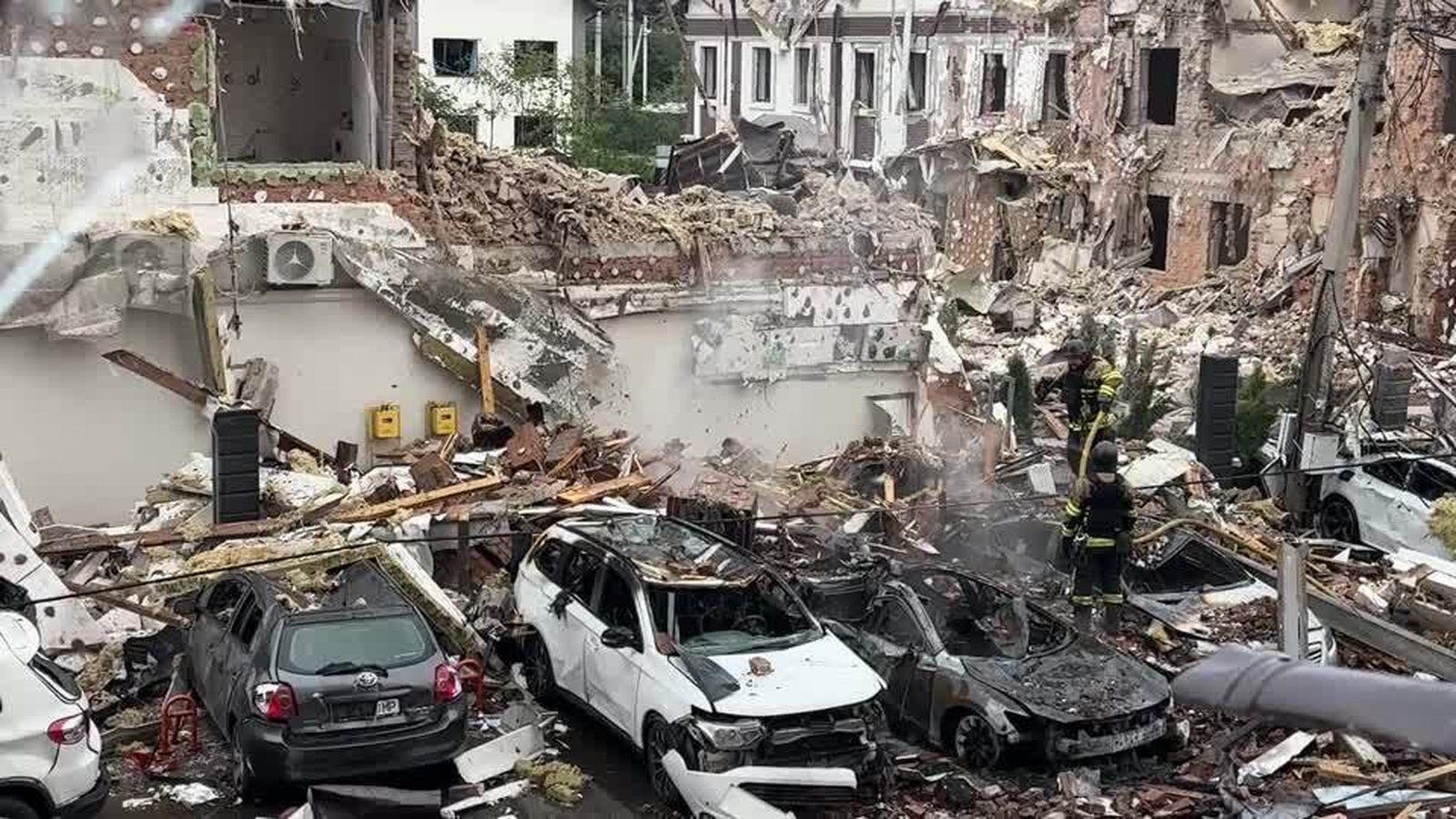
Read more on post.
Kyiv has come under heavy drone and missile bombardment this morning, in what independent monitors said was one of the biggest Russian attacks on the Ukrainian capital and surrounding region since the war began.
At least three people were killed and about ten injured in the city, the head of Kyiv’s military administration said on the Telegram messaging app.
Ukrainian Foreign Minister Andrii Sybiha said Russia had launched a “massive” air attack on the country involving hundreds of missiles and drones.
He said the attack underlined the need for more punitive sanctions against Russia to force it to stop its aggression.
“Putin must feel the danger of continuing this war – personally for him, his buddies’ pockets, his economy, and his regime,” he posted on X, referring to Russian President Vladimir Putin.
“That is what can make him stop this senseless war.”
Several other regions were also hit in the strike, with at least 16 people, including three children, injured in the southern city of Zaporizhzhia, authorities said.
Several buildings were damaged and on fire in Zaporizhzhia, footage posted on social media channels in the area showed.
In Kyiv, drones flew over the city and anti-aircraft fire rang out for several hours, according to Reuters witnesses. Loud explosions were also heard. The attack was continuing as of 9.15 local time (7.15 Irish time).
Kyiv’s Mayor Vitali Klitschko said a fire had broken out at a state cardiological hospital as a result of the attack.
Some residents fled to metro stations deep underground for safety, sleeping on makeshift beds or sitting on deck chairs following events on their phones.
Neighbouring Poland closed airspace near two of its southeastern cities and its air force scrambled jets in response.
Breaking News
‘My tears could help people survive brain tumours’
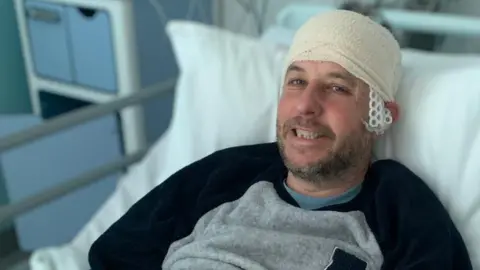
Read more on post.
Lynette HorsburghNorth West
A father with an incurable brain tumour has donated his tears to a pioneering study that could revolutionise how brain cancers are detected because he wants to “make a difference”.
Alex Davies was initially treated for epilepsy but months later scans revealed he had a brain tumour and was told he may only have 12 to 18 months to live.
The 49-year-old is now taking part in research at the Manchester Cancer Research Centre exploring if tear fluid can identify glioblastoma, the most aggressive form of brain tumour.
He is hoping the study will result in earlier diagnoses and ultimately save lives.
Mr Davies, from Lostock, Bolton, started suffering seizures in 2023 before later undergoing surgery, chemotherapy and radiotherapy.
Follow-up scans initially showed no evidence of cancer but later tests discovered the tumour was growing back and he is now receiving palliative care at home.
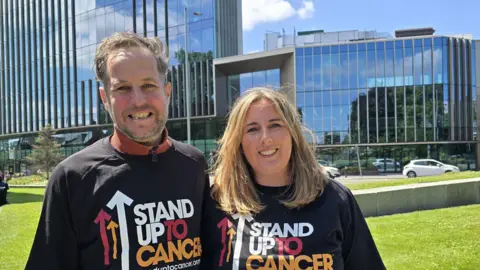 Cancer Research UK handout
Cancer Research UK handoutMr Davies, who worked at Network Rail before his diagnosis, said he was relatively fit with no health conditions when he “collapsed out of the blue”.
“It took months to get to my diagnosis and my initial MRI scan didn’t spot the tumour,” he said.
“My symptoms worsened over about three months including severe headaches, my speech became affected as well as my balance and I was getting confused.”
The father-of-two continued: “If helping with this research could mean someone like me can be diagnosed sooner, it offers real hope for the future.”
Mr Davies’ wife Emma said it was a “really horrible time for us”.
She said if a simple tear test could be used to bring a diagnosis forward it “would improve that awful time for so many others in the future”.
Thanks to nearly £500,000 funding from Stand Up To Cancer – a joint fundraising campaign from Cancer Research UK and Channel 4 – the study led by scientists at the University of Manchester has expanded to include larger-scale trials.
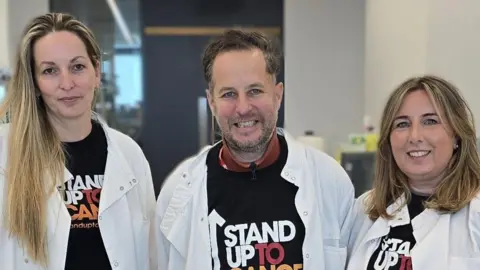 Cancer Research UK handout
Cancer Research UK handoutResearchers have described the test as a “liquid biopsy” and said the “world-first approach” could pave the way for faster, cheaper and less invasive brain cancer diagnosis.
If successful, the test could be rolled out to GP surgeries which would allow patients to receive a diagnosis much earlier.
Prof Petra Hamerlik, who lost her father to glioblastoma at a young age, is leading the project.
She said the research had not previously been explored to diagnose brain cancer.
“My team is currently developing a tear-protein-based classifier that can differentiate brain cancer patients from healthy volunteers with high levels of accuracy,” she said.
“If successful, we’ll seek further funding to develop a tool that can be rapidly deployed across health services, ultimately helping patients like Alex receive a timely diagnosis and better outcomes.”
-
Politics5 days ago
European Parliament snubs Orbán with vote to shield Italian MEP from Hungarian arrest
-
Culture2 months ago
Fatal, flashy and indecent – the movies of Adrian Lyne revisited
-
Environment1 week ago
Key oceans treaty crosses threshold to come into force
-
Culture3 weeks ago
Life, loss, fame & family – the IFI Documentary Festival in focus
-
Culture5 days ago
Twilight at 20: the many afterlives of Stephenie Meyer’s vampires
-
Culture2 weeks ago
Farewell, Sundance – how Robert Redford changed cinema forever
-
Culture4 weeks ago
What is KPop Demon Hunters, and why is everyone talking about it?
-
Health6 days ago
EU renews support for WHO’s Universal Health Coverage Partnership










